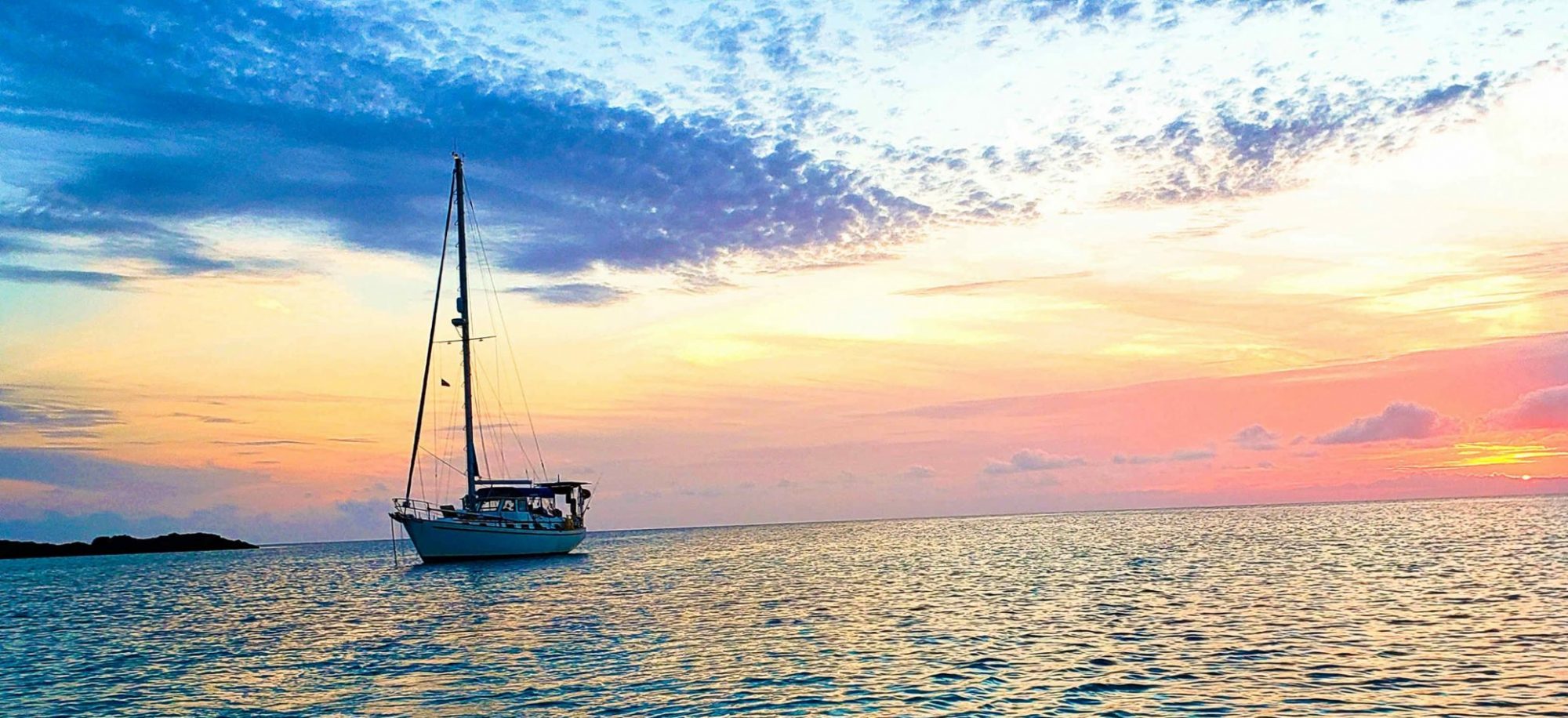We have crossed the Gulf Stream from Florida to the Bahamas and back several times. Each time has been different. The same is true crossing between, say regions of the Bahamas over “deep” water. The Northwest Providence channel has parts over 12,000 feet deep!
They differ for various reasons. Sometimes its our condition, that is the crew. Sometimes the boat feels different. Almost always its the weather. I guess really a combination of these.
For ourselves, we often only sail offshore. We enjoy it more than the ICW. Offshore is akin to strolling through a hillside field in warm sunshine, with nothing around you. Its pleasant, you can easily enjoy living in the moment, noticing all the small creatures and differences in the field. The ICW is more akin to being stuck in city traffic. You must constantly be on alert, looking to see what other boat operators are doing, or worrying about running aground. You also park each night on the ICW, whereas on the ocean you just set your course, keep a watch and through the night.
Importantly, though, the ICW forestalls acclimation to the Ocean. The constant movement of swells and of the boat prepares your body. The adjustment is needed for the crossings and passages. So skipping the ease of the ICW helps make the eventual crossing that much easier or pleasant. This is especially true when the weather is benign and particularly necessary when it isn’t.
We have learned a healthy respect for weather. In our shore lives we sort of looked at the nightly news to get the weathermans prediction; honestly out of habit acquired from our parents. Although we did this, we only paid attention to the extremely inclement weather: Hurricanes, Nor-easters and Hurricanes. But it was more to pick which jacket we took with us, than to plan our lives around. This is due to the fact that dealing with almost any weather is fairly survivable in the modern, urban world. Not so on the ocean.
In the Gulf Stream, a wind that would make for a good fall day on shore, can have life of death consequences for a small boat. Wind against current can be deadly. In the case of crossing the Gulf Stream we pick a wind from the east-south east through the west and NO northerly component. This has been sound advice and we stick to it. And that works well most times. Once in a while, the wind doesn’t behave as forcast (almost all the time with respect to wind speed) and you get a passage worse than you planned.
Our recent passage went well. A massive storm (low pressure system) camped over southern Florida for a week. We were at No Name anchorage on “Cape Florida” waiting for it to pass. The evening before we had planned to leave brought us a sleepless night with high winds and torrential rains. It was a beautiful night, if you enjoy storms… By the morning we had just about decided we were not leaving. But sleepless and staring out toward the east for dawn, we saw the back side of those storm clouds moving east and north. A quick check of the current forecast had the winds going south and then southwest that day. With dark clouds leading our way we point the bow east to Bimini.
It was a 7 or 8 hour day for us, since out boat is not fast. But it was comfortable most of the way. That is, until about an hour or two out of Bimini the wind start coming from the west and waves started building up from what seemed like multiple directions. And we felt queasy. We had not paid the dues of offshore as far or as frequently as we had in the past. But we still had done enough to not go full blown sea sick.
We adjusted our course, due to the west winds, to land on the Bahamas bank a little south of Bimini. From there, we made a protected approach to AliceTown behind the reef and in no danger at all. Others coming behind us made multiple attempts to come in through the normal channel, but the building seas had them abandon heir approach, to seek shelter else where.

We approach other “big” crossings the same as we do the Gulf Stream. We look for reasonably settled weather, long enough to complete the voyage. Luckily in the Bahamas and most of the Caribbean, its usually a day or less. But we really enjoy the deep water crossings. The blue of the water is so deep, its impossible to describe. Fishing deep water for Wahoo or Mahi Mahi, to us at least, is incredibly fun. Plus, there is no land for miles and one can relax. But only if we have prepared ourselves, the boat and checked the weather first.
